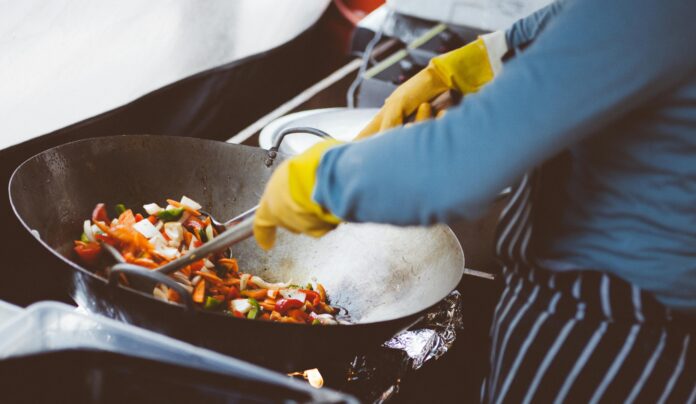There is an age old question about when we use wine to cook. Do you use a cheaper wine or a more expensive? Dry wine or sweeter wine? Fuller body or lighter? There are a few simple rules to follow and you’ll be laughing!
Should I Use Cooking Wine?
Many wine authorities argue against using cooking wine, considering it low-quality and potentially harmful to the dish. However, cooking wine is perfectly fine to use. Cooking wine amongst most enthusiasts is simply cheaper wine! Many high-end restaurants use cooking wine to control costs, and it’s generally not noticed in the final dish.
Some wineries are rumoured to produce cooking wines with alcohol that are heavily salted to prevent consumption. However I am sure that this is more urban myth – than hard truth.
If you don’t drink, using cooking wine makes sense. It can still add flavor to your dish and provide all the benefits. Remember the cooking process burns off the alcohol.
White Wines for Cooking
The best white wine for cooking is Pinot Grigio, as it is inexpensive, enjoyable on its own, and easy to find on store shelves. Pinot Grigio imparts flavors of citrus, lemon, minerals, pear, and apples into your dishes. It’s also particularly great for steaming mussels.
If you’re looking to add citrus flavors and herbal notes to your dish, Sauvignon Blanc is an excellent choice for cooking. It’s bright with acidity and imparts flavors of citrus, grapefruit, green herbs, and smoke, making it ideal for a herbal lemon sauce for chicken.
Most white wines are suitable for cooking, but it’s best to avoid oak-aged white wines like oaked Chardonnay, which can come across as bitter and may add flavors of butter, vanilla, and toast that might not complement cleaner seafood dishes such as mussels, scallops, and calamari in a wine sauce with fresh pasta.
Also, stick to dry white wines, as sweet wines like Riesling will add extra sweetness to your dishes, which may not be desirable unless you’re preparing a dessert.
Red Wines for Cooking
The best cooking reds will vary depending on your cuisine. For Italian dishes, Chianti is comfortably the best red. It has enough acidity and fruitiness to complement any tomato sauce. Chianti also has herbal, earthy, meaty, and smoky flavors that enhance the dish.
The best red wine for braising beef or BBQ fare, such as ribs or brisket, is either a Côtes du Rhône or an inexpensive Cabernet-Shiraz blend. Shiraz adds amazing black pepper notes that meld perfectly with beef and pork. While Cabernet grapes impart juicy flavors of blackberries that add body to every bite of beef.
Côtes du Rhônes are a favorite red wine for cooking, but it may be challenging for those new to wine due to its blended nature. Expect a fruity, earthy, and dry red wine that is not too high in tannin, making it ideal for braising beef.
Most red wines are suitable for cooking, but avoid expensive red wines that are oak-aged and high in tannin, as they can create a bitter aftertaste in your dishes. These wines also have subtle nuances of flavor that may be lost during cooking.
